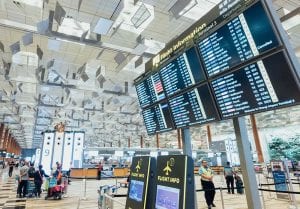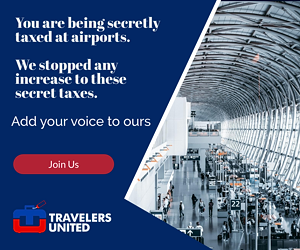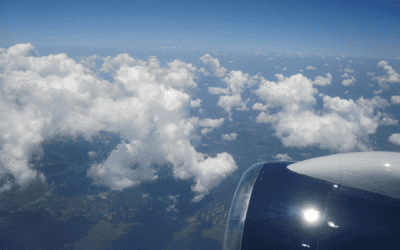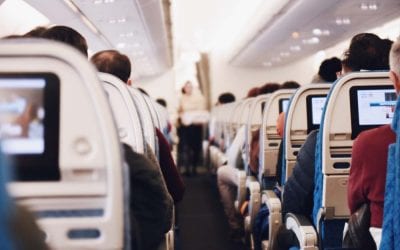Do we need new rules for delayed and canceled flights? Will an EU system help in the US?

At the same time, the Federal Aviation Administration (FAA) Reauthorization bill was being debated in Congress. One of the top priorities for consumer advocates was starting a system of penalties for domestic airline delayed and canceled flights that do not adhere to published schedules. Mind you, these are schedules that airlines create themselves.
Airlines in the US have free rein when it comes to maintaining schedules. In Europe, airlines have skin in the game.

US airlines have for years had to maintain their transatlantic schedules for all flights from Europe to the US. You never hear airlines complain about the money they are losing on transatlantic flights. In fact, they make good profits on international fights. The tired argument that paying fines will hurt profitability is gone.
Then again, EU fines seem to push delays higher.
The Wall Street Journal, taking figures from FlightAware data, had a chart that showed Europe, even with the system of fines, has a more significant percentage of delayed flights than the US. (These delay statistics are from May 1 through August 1 for the 50 biggest airports)
- In 2019 — delays in the EU were about 24 percent and in the US about 18 percent.
- In 2022 — delays in the EU were around 29 percent, and in the US, about 22 percent.
- In 2023 — EU delays hit 33 percent, and US delays were under 25 percent.
There is a system of fines, but the basic EU fines are here.
In all cases, if your flight arrival is delayed by three hours or more, you are entitled to the following payments, known as the “right to compensation”: This chart is from Forbes Magazine.
If the airline offers rerouting to the final destination and any of the following apply, the airline can reduce the compensation by 50%.
The drone in DC for the past decade has been that since the EU required airlines to maintain their schedules under pain of penalties and the US did not, the differences would favor the EU airline delays. That has not panned out. Even with penalties, the EU delays and cancellations are worse than US data.
The reasons for delays are many — staffing shortages last year, and ATC issues, strikes, and wildfires this summer.
Of course, the relationship between the delays in the EU and the US is not simple. When these delay figures are compared with year-to-year data, many other factors are involved. In 2022 staffing shortages were the main culprit. Personnel like baggage handlers shed during the pandemic did not all return as passengers surged back.
This year, the strength of the US vacationers led to problems with the air traffic control (ATC) system. Eurocontrol reported an increase of 12 percent in passengers during the summer months. Some ATC problems led to slowdowns at many airports as the shortage of controllers delayed both departing and arriving flights.
Wildfires raged near Nice in southern France. In Greece, there were fires in several of the top tourist destinations — Corfu and Rhodes. Sicily also saw airport shutdowns as flames cropped up near the Palermo airport.
The penchant for going on strike in France and Italy also played into the increase in delays. Luggage handlers, cabin crews, and security staff all went on strike in Germany, France, and the UK. Some airlines stopped almost 2,000 flights because of air-traffic control delays.
The war in Ukraine has limited commercial airspace.
Adding to the delays has also been the loss of airspace in Ukraine. As the battles between the Russians and the Ukrainians rage, few commercial fights are moving over the area. The flights all have longer routes now and the additional fuel burn of over $15,000 for each flight adds to airline costs. Plus, the closure of Russian airspace has added problems with slot controls.
The most significant considerations for DOT are new issues with airline scheduling and fines for delayed and canceled flights.
The last four years have turned the world of fines and their effect on schedules on their head. Before the effects of COVID, the analysis of delays and cancellations was far more straightforward. Consumer groups have long held airlines accountable for their created schedules. Now, with more delays in the EU than in the US, that issue is being questioned.
Who does EU regulation affect for delayed and canceled flights?
This legislation about maintaining schedules would be enacted to help travelers on flights within the 27 EU nations. These include Austria, Belgium, Bulgaria, Croatia, Cyprus, Czech Republic, Denmark, Estonia, Finland, France, Germany, Greece, Hungary, Ireland, Italy, Latvia, Lithuania, Luxembourg, Malta, the Netherlands, Poland, Portugal, Romania, Slovakia, Slovenia, Spain and Sweden.

Delayed passengers in EU are compensated for their troubles. In the US no passengers get compensation.
At least in the EU there is passenger compensation even though the total delays and cancellations are higher in the EU than in the US.
READ ALSO:
Why Congress needs to pass bipartisan resort fees legislation now!
Airlines damage passenger wheelchairs — more than 200 a week

Charlie Leocha is the President of Travelers United. He has been working in Washington, DC, for the past 14 years with Congress, the Department of Transportation, and industry stakeholders on travel issues. He was the first consumer representative to the Advisory Committee for Aviation Consumer Protections appointed by the Secretary of Transportation from 2012 through 2018.



